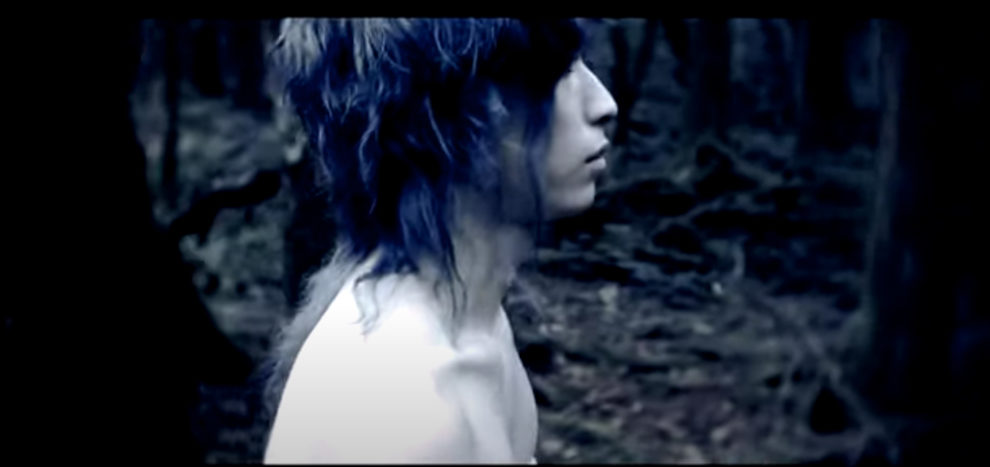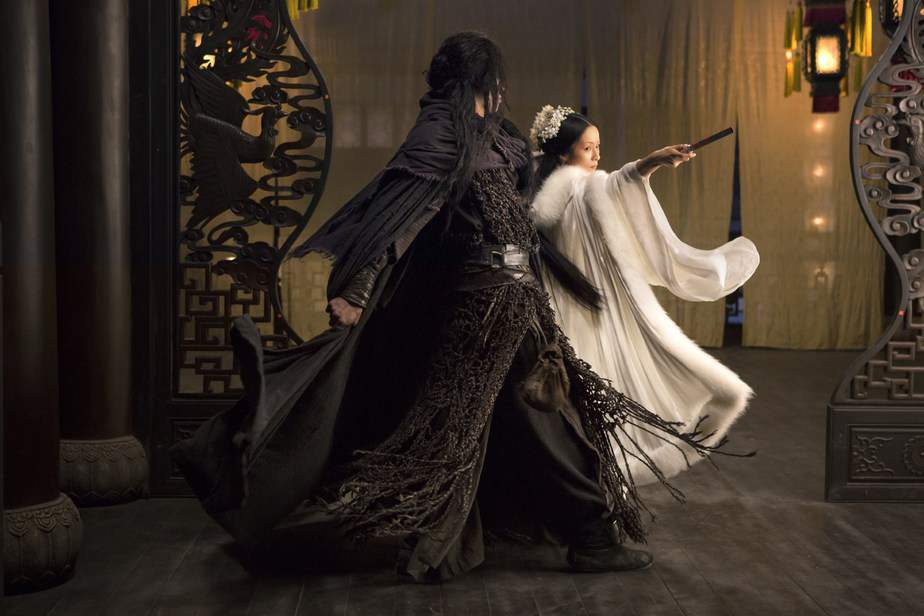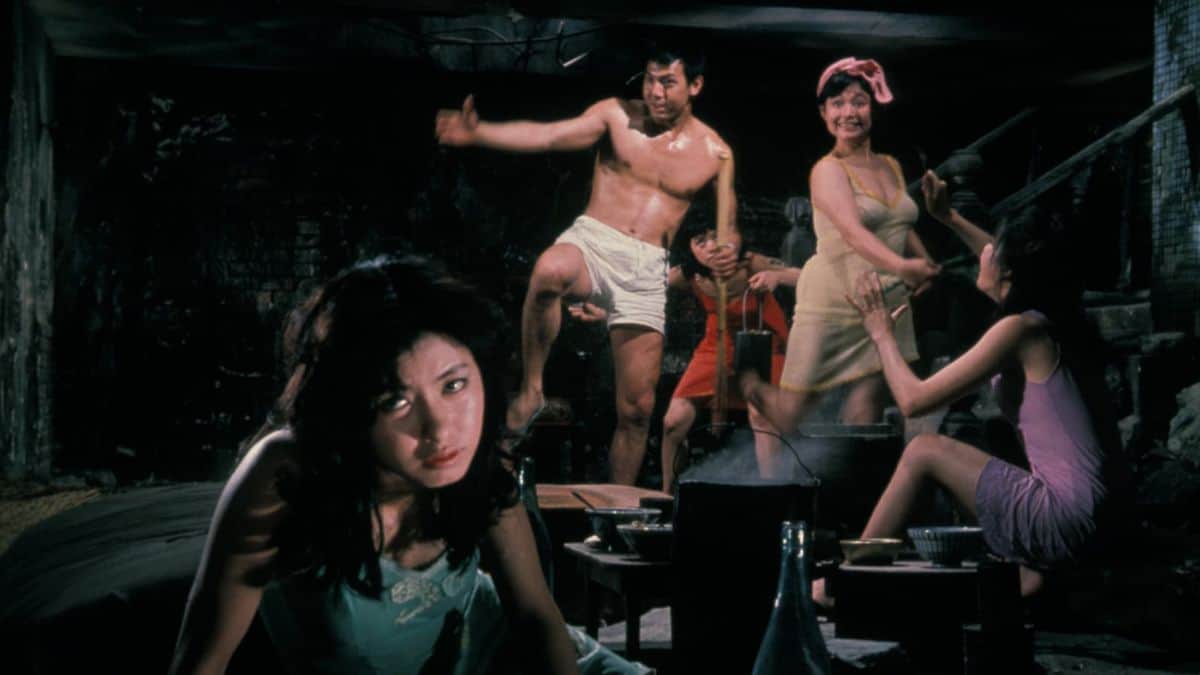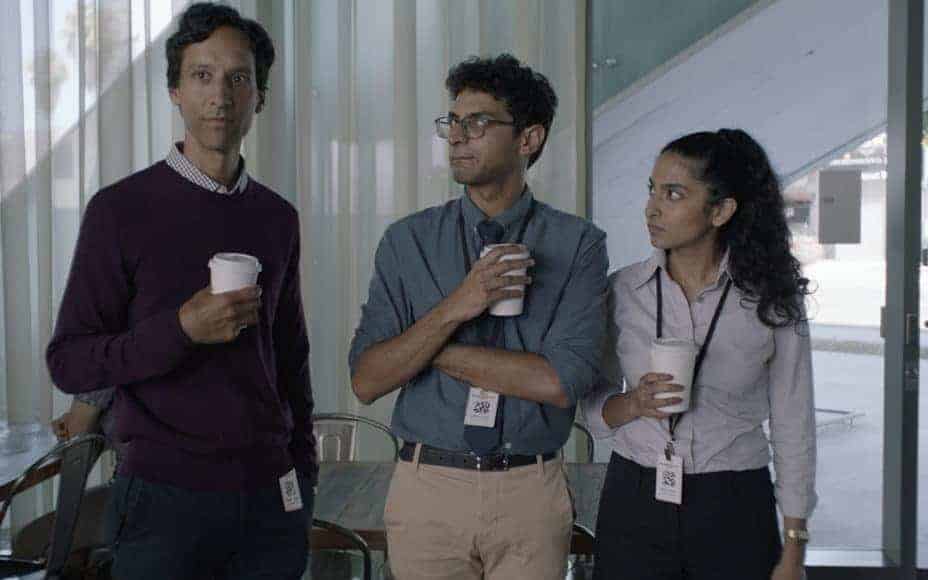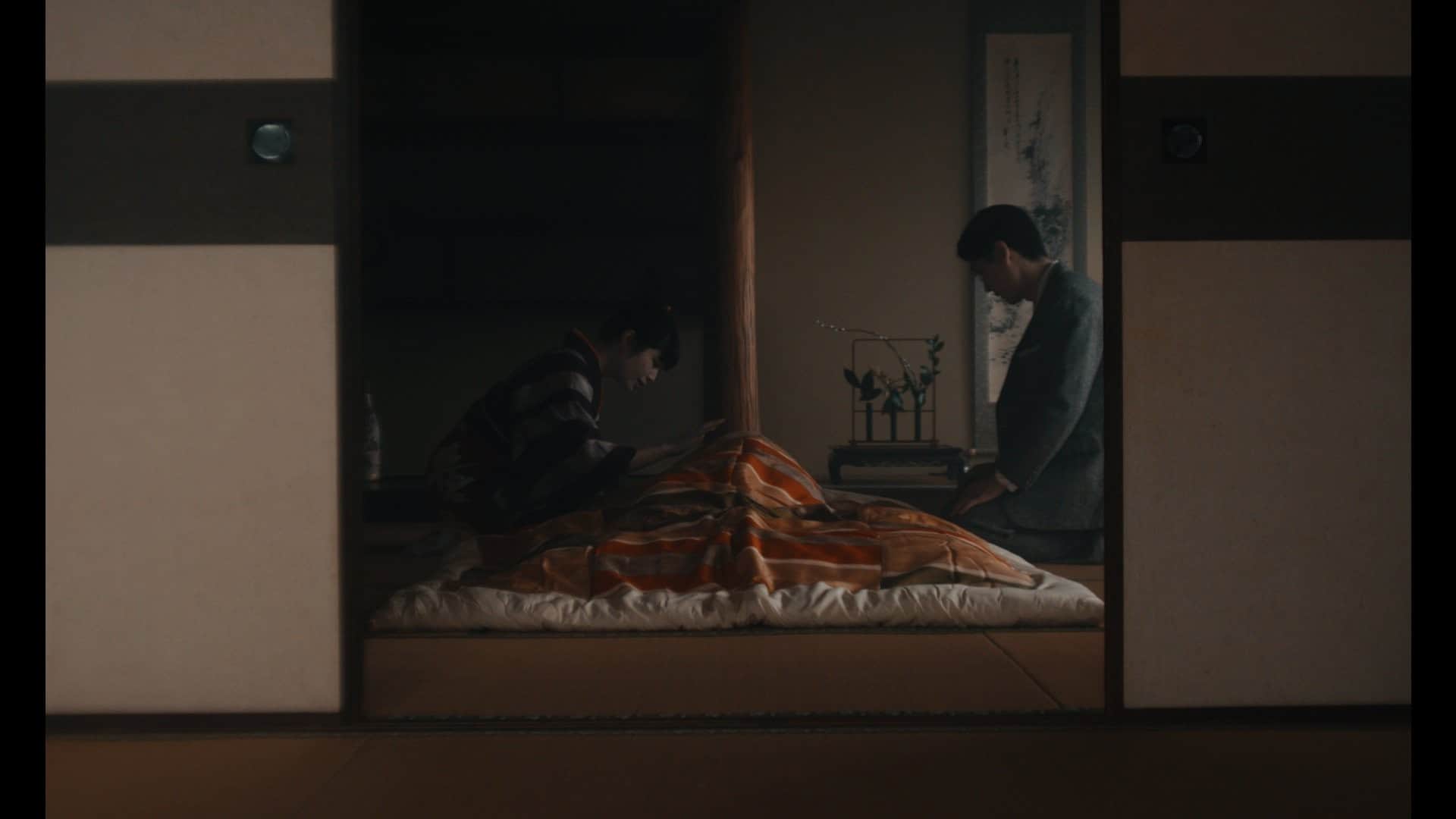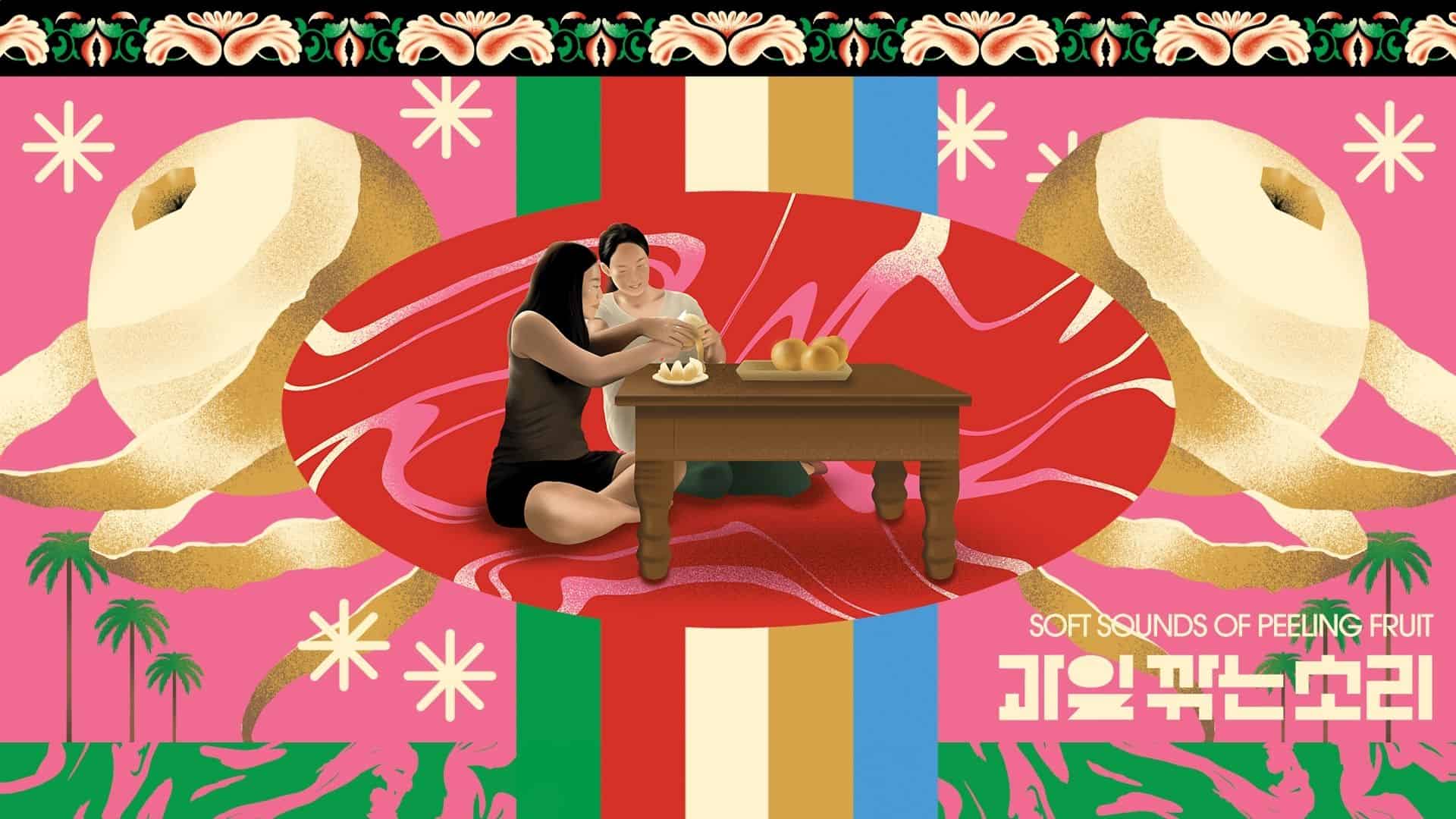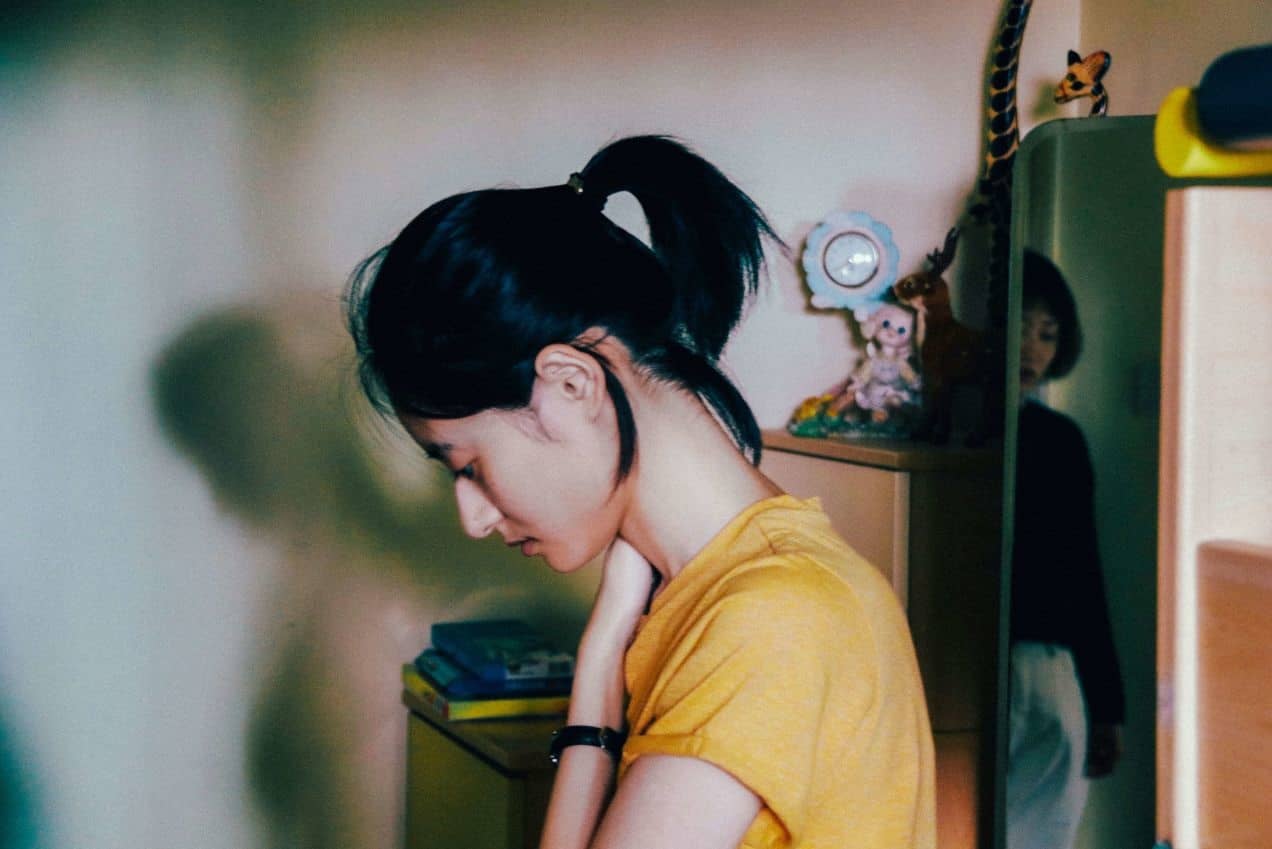“Love Affair” by Akinori Tschiyama is streaming on Japan Film Fest Hamburg in the Noh-Arthouse section and thus pays homage to the Japanese tradition of Noh theatre.

Deep in a forest, seemingly shielded from civilization, at first, we only see trees. A young man lies on the ground, then wakes up slowly and struggles to get up on his feet. He is dressed only in a sheet, his hair is dyed blue. As if stunned, he puts one foot in front of the other and walks on the mossy forest floor. He sees candles, mist and again and again a woman's face appears before him. He walks on, still carefully. He looks for the woman, but will she bring him good luck or bad?
Only at the end of the film there is something like a linguistic interaction between them. The woman repeats the same sentence over and over again. It is like a mantra that tells of love and death. The male figure seems to be caught in a cycle. He was born of the forest, in the forest he will die again.
“Love Affair” is very evocative. The author opts for a laconic-poetic language and thus leaves a lot of room for imagination. The forest as a motif offers numerous associations and functions as a closed, uniform backdrop for the film. It is also the forest that takes you into a fairy-tale mythological world, where the supernatural happens and mythical creatures exist. Appropriately, Tsuchiyama chooses an aesthetic that has its origins in Japanese Noh theatre. This includes the mask-like faces and the flowing movements of the dance.
For all the fascination the film holds for the viewer, you also get the feeling that the author couldn't quite decide on a motif here. He wildly mixes musical styles and cultures. Even an homage to Charlie Chaplin is accommodated in the nine minutes. A movie that raises many questions.
The main characters are played by Yoshiki as for the male figure and Polina as for the female. They reach the contrast the director intended very well, coming from different culture backgrounds and incorporating on the one side the sleepy and on the other the lively part.
The music that accompanies the film alternates between happy and threatening. The images follow in an ever faster rhythm. The editing, which Tsuchiyama did himself, is complex. The director uses it to arrange Yoshiyuki Okubo's images, some of which are static, some of which were taken with a handheld camera, into a dreamlike experience.


